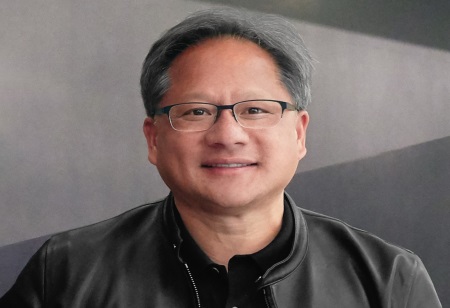
Nvidia's CEO proposes Malaysia as Southeast Asia's AI manufacturing hub

 The CEO of Nvidia, a prominent technology company, expressed the perspective that Malaysia holds potential as a hub for the "manufacturing" of artificial intelligence, although he did not confirm ongoing discussions with a local conglomerate about establishing AI data centers in the Southeast Asian nation. Jensen Huang, the founder and CEO of Nvidia, mentioned that the Malaysian conglomerate YTL Corp. could play a crucial role in the setup of AI data centers. While not confirming specific talks with YTL, whose business interests encompass utilities, telecommunications, cement, construction, and property development, Huang praised YTL as an exceptional company with remarkable leadership and a strong legacy.
The CEO of Nvidia, a prominent technology company, expressed the perspective that Malaysia holds potential as a hub for the "manufacturing" of artificial intelligence, although he did not confirm ongoing discussions with a local conglomerate about establishing AI data centers in the Southeast Asian nation. Jensen Huang, the founder and CEO of Nvidia, mentioned that the Malaysian conglomerate YTL Corp. could play a crucial role in the setup of AI data centers. While not confirming specific talks with YTL, whose business interests encompass utilities, telecommunications, cement, construction, and property development, Huang praised YTL as an exceptional company with remarkable leadership and a strong legacy.
Malaysia holds significant importance as a hub for computing infrastructure in Southeast Asia, requiring essential resources like land, facilities, and power, according to Jensen Huang, the CEO of Nvidia. He emphasized the crucial role that YTL, a Malaysian conglomerate, could potentially play in providing these resources. Huang highlighted Malaysia's expertise in packaging, assembly, and other manufacturing aspects, making it well-suited for artificial intelligence manufacturing. He also mentioned that Nvidia is collaborating with 80 AI startups in Malaysia and acknowledged the success of the data center infrastructure layer of computing, a vital component of AI and cloud technology, in the country.
Southeast Asia is poised to become a central hub for AI computing, driven by the necessity for individual AI data centers in countries to refine and convert data into valuable insights. Traditional data processing centers were primarily designed for storing data files and running applications, but AI demands a deeper understanding of each region's culture, language, values, literature, and common sense, as explained by Huang. While he may not be familiar with the specific plans of every region, Huang expressed strong confidence that Southeast Asia will emerge as a crucial technology hub. He noted the region's existing strengths in packaging, assembly, and battery manufacturing, along with its proficiency in various aspects of the technology supply chain.

